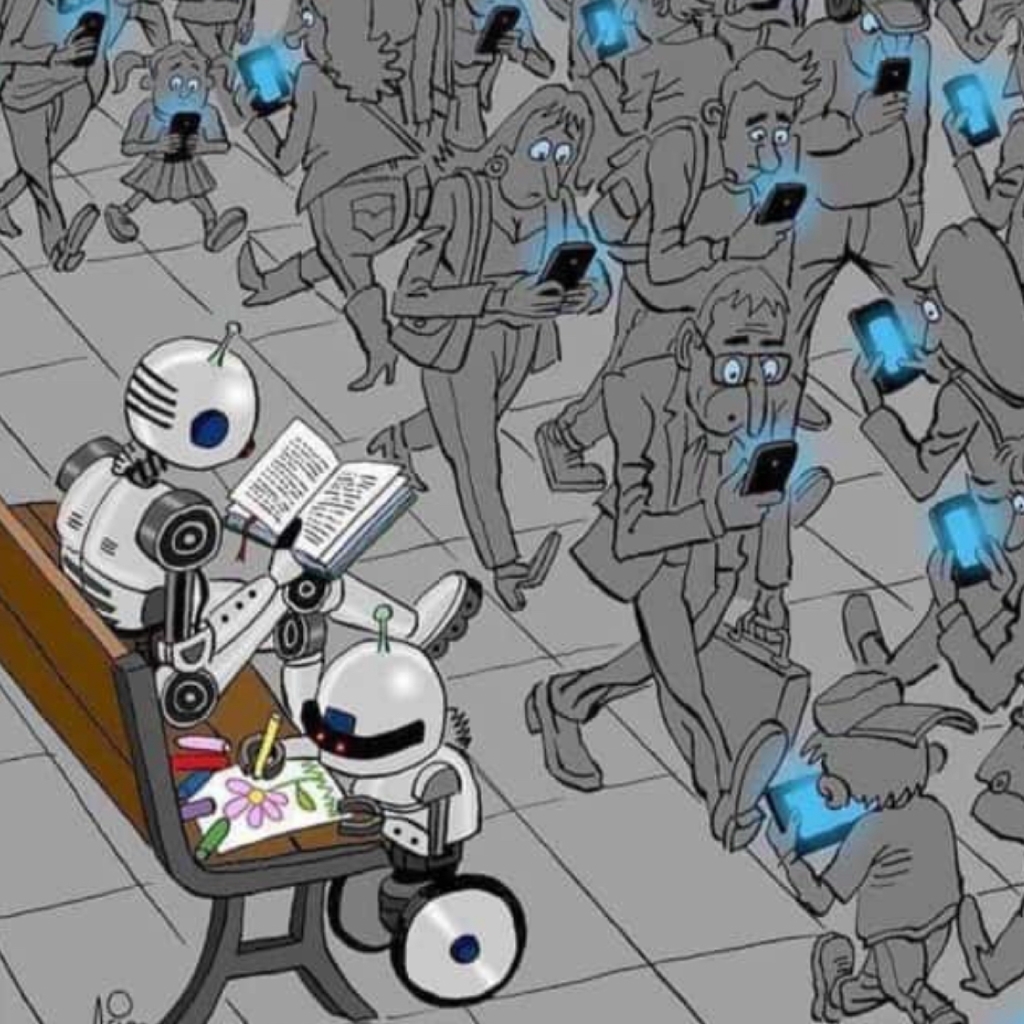
In today’s fast-paced world, every aspect of our lives seems to be more automated and reliant on artificial intelligence (AI). From the way we communicate with each other to the way we perform our jobs, AI is becoming an ever more present force in our lives. But unfortunately, this increasing reliance on AI has #negativeconsequences for human beings, as we are reading less and relying more on technology to do our thinking for us, as the image ironically describes it.
It is true that, in many ways, AI is making our lives easier and more convenient. We can use our smartphones to order food, schedule appointments, and even pay bills without ever leaving the house. However, this convenience comes at a cost. When we rely too heavily on AI, we are not engaging our brains as we would if we had to perform these tasks manually. This can lead to many negative consequences, including decreased cognitive function, reduced creativity, and a diminished ability to think critically and solve problems.
One of the biggest challenges with our increasing reliance on AI is that it can be difficult to balance using it to our advantage and to become too dependent. As a result, many companies and universities have begun blocking access to chatGpt and other AI tools to encourage employees to think more independently and rely less on technology to perform their jobs. While this may be an effective short-term solution, it is essential to consider the long-term consequences of a society that is increasingly reliant on AI.
So, What does the future hold for humanity?
It is impossible to predict precisely what the next few decades will look like, but our relationship with AI will continue to evolve. Some experts predict that AI will become so advanced that it will outstrip human intelligence, leading to a world in which robots and AI systems dominate all aspects of society. However, this is a worst-case scenario, likely to happen sometime soon.
Instead, it is more likely that AI will continue to play an essential role in our lives but that we will learn to use it more responsibly and in a way that complements, rather than replaces, human intelligence. This means finding ways to balance using AI to our advantage and continuing to engage our brains in our tasks.
There are a few things that individuals and companies can do to help ensure that our increasing reliance on AI is a positive, rather than a negative, development.
- We can all try to reduce our dependence on technology and engage more in activities that challenge our brains and stimulate creativity.
- Companies can encourage employees to use AI tools responsibly and rationally rather than relying on them to think for them.
- We can all work together to ensure that AI is developed relatively, ethically, and transparently so that we can continue to reap the benefits of this technology without sacrificing our humanity in the process.
In conclusion, the increasing reliance on AI is a double-edged sword. While it can make our lives easier and more convenient, it also comes at a cost. However, by balancing using AI to our advantage and continuing to engage our brains in our tasks, we can help ensure that our relationship with the technology remains positive and productive. Only by working together can we create a future in which humans and AI can coexist in harmony rather than one in which robots and machines dominate all aspects of society.

